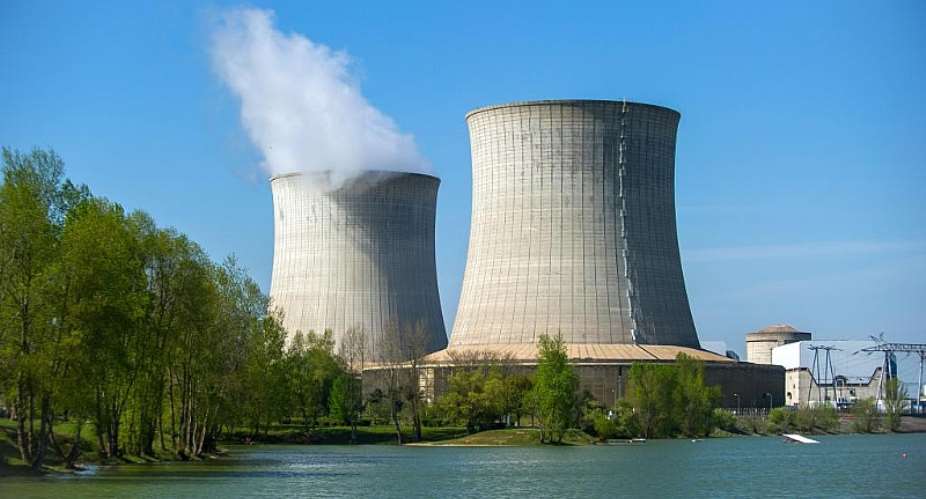French nuclear watchdogs warned on Tuesday that they had registered abnormally high radioactivity levels in part of the central River Loire downstream from five atomic reactors.
The unusually high levels of tritium, a radioactive isotope of hydrogen released from nuclear reactors, was found in January 2019 in the waters at Saumur, a city of about 27,000 inhabitants on the Loire between Angers and Nantes.
The isotope, which occurs rarely in nature, was present “nearly systematically in the river and drinking water,” according to the Association for Radioactivity Monitoring in the West (ACRO), an independent nuclear watchdog whose laboratories are based in Normandy.
“In January, the concentration in the waters of the Loire reached 310 bequerels per litre,” the group said in a joint statement with France's Stop Nuclear Network. A bequerel (Bq) is a unit of measurement of the activity of radioactive materials.
According to France's Institute for Radioprotection and Nuclear Safety (IRSN), “the code of public health sets a reference of 100 Bq/L for tritium,” which when surpassed, “entails a complementary investigation into the radioactivity of the water”.
Radioactivity levels went undetected
However, ACRO said that neither the IRSN nor any other official monitor spoke of or detected the abnormal level, despite its own finding that tritium is present over nearly 400km of the Loire
“Is it due to an incident?” the group asked, calling on authorities to carry out “an investigation to determine the origin of this exceptionally high level”.
The statement cites nuclear reactors as the source of the elevated levels of tritium, which occurs rarely in nature.
At the town of Châtellerault on the Vienne, a tributary of the Loire, “river and drinking water have been contaminated with tritium in every monthly sample since last December,” the group says.
Nuclear safety body says no health risk
“There is no risk to the environment or the public,” assured France's Nuclear Safety Authority (ASN), which added that the IRSN would carry out investigations to determine the source of the tritium.
A 2010 report on nuclear safety concluded safety authorities underestimated the toxicity of tritium, the only radioactive element whose emissions were increasing in France.
The report, by a scientist of France's National Centre for Scientific Research, also warned about a “flagrant” lack of data on the “carcinogenic effects of tritium”.





 NDC demands complete overhaul of security protocols at EC to safeguard electoral...
NDC demands complete overhaul of security protocols at EC to safeguard electoral...
 Ghana reaches interim deal with international bondholders — Finance Ministry
Ghana reaches interim deal with international bondholders — Finance Ministry
 Mahama to form joint army-police anti-robbery squads to safeguard 24-hour econom...
Mahama to form joint army-police anti-robbery squads to safeguard 24-hour econom...
 Another man jailed eight months over shrinking penis
Another man jailed eight months over shrinking penis
 Ghana to adjust external bond deal to meet IMF debt sustainability goals — Finan...
Ghana to adjust external bond deal to meet IMF debt sustainability goals — Finan...
 IMF negotiations: We've not failed to reach an agreement with bondholders; we’ve...
IMF negotiations: We've not failed to reach an agreement with bondholders; we’ve...
 EC begins recruitment of temporary electoral officials, closes on April 29
EC begins recruitment of temporary electoral officials, closes on April 29
 NPP lost the 2024 elections in 2022 due to inflation and cedi depreciation — Mar...
NPP lost the 2024 elections in 2022 due to inflation and cedi depreciation — Mar...
 Your good heart towards Ghana has changed; don’t behave like Saul - Owusu Bempah...
Your good heart towards Ghana has changed; don’t behave like Saul - Owusu Bempah...
 Wa West: NDC organizes symposium for Vieri Ward Women
Wa West: NDC organizes symposium for Vieri Ward Women
